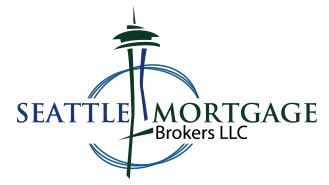We're In A Buyers Market Lower mortgage rates haven’t caused an uptick in demand just…
Down Payment – What You Should Know
What to know about down payments…
Coming up with enough money to put down when buying a new home can be the single biggest roadblock for of our mortgage clients. But how much do you really need?
What is a down payment?
A down payment is the funds you pay upfront to get a home loan. It is deducted from the total amount of your purchase price and represents the beginning equity (your ownership interest) in your new home.
Benefits of 20% down payment
A majority of lenders would prefer a 20% down payment. With 20% down, lenders will definitely love you more. First of all, you’ll have a much better chance of actually getting approved for a loan. And you have a better chance to get a better mortgage interest rate. There are all sorts of other benefits too:
- Probably lower closing fees (we’ll talk more about that in a second)
- Lower ongoing fees (No Mortgage Insurance)
- More equity in your home right off the bat
- A lower monthly payment
Evaluating low down payment alternatives
It is possible to buy a home with as little as zero to 1% down. Why did we wait so long to give you that good news? Well, let’s go over the details first before we weigh the pros and cons.
(FHA) The Federal Housing Administration is a government agency charged with helping home buyers (especially first timers) get approved. The FHA does that by assisting mortgage lenders in making loans by guaranteeing a portion of the loan balance. That’s how you can put less money down — in fact, as little as 3.5%.
Also, Fannie Mae and Freddie Mac, the government-sponsored companies that drive the residential mortgage credit market, have 3% down payments on home loans.
And if you’re an active or retired service member, or live in a rural area, you may have access to zero down payment programs through the Department of Veterans Affairs (see VA Loans) or the Department of Agriculture’s Rural Development program. It’s always a good idea to ask about down payment options when you’re shopping for a mortgage.
Also, with good credit, we have some lender grant programs, where you put down 1% and the lender “grants you” 2%. You can move in with 1% down of your money and the lender gives you another 2% (free money) so you have the 3% needed for the Fannie Mae or Freddie Mac’s minimum down payment. In most instances you can have the option for lender paid mortgage insurance, which allows for no mortgage insurance.
What is the right down payment amount for you?
Does zero down make you spring into a happy dance? Sounds like a pretty easy decision, right? But you knew there would be fine print.
A lower down payment can make you a bigger risk in the eyes of a lender. That’s why it will look for help from one of those government programs to guarantee a portion of the loan. The thing is, you still pay for the guarantee. It’s called Mortgage Insurance (MI). There may be an upfront fee and possibly an ongoing charge built into your monthly payment.
Some of the programs don’t require mortgage insurance, but will charge an “upfront guarantee fee” or “funding fee.” Whatever you call it, a fee is a fee. And as a higher risk, you also could pay a higher interest rate.
It’s tempting to go with the lowest all-in upfront charges when trying to buy a home. But the key to building net worth is to buy smart, especially when it comes to such a large purchase as a house.
Lenders and brokers are required to disclose all fees. Taking time to compare the fees from different lenders can save you thousands of dollars over the long haul.
The down payment is just the first financial hurdle.
Steve Gilbert with Seattle Mortgage Brokers is always happy to answer any questions you have, and get you a rate quote you can work with. You can call with your questions, 206-992-5635 or email him any time of the day, and day of the week at Steve@SeattleLoanBrokers.com
Click Here To Apply For New Home Loan
*This article does not represent legal interpretation or advice. This is not a commitment to make a loan. Loans are subject to borrower qualifications, including income, property evaluation, sufficient equity in the home to meet LTV requirements, and final credit approval. Approvals are subject to underwriting guidelines, interest rates, and program guidelines, and are subject to change without notice based on applicant’s eligibility and market conditions. Refinancing an existing loan may result in total finance charges being higher over life of loan. Reduction in payments may reflect longer loan term. Terms of the loan may be subject to payment of points and fees by the applicant.


